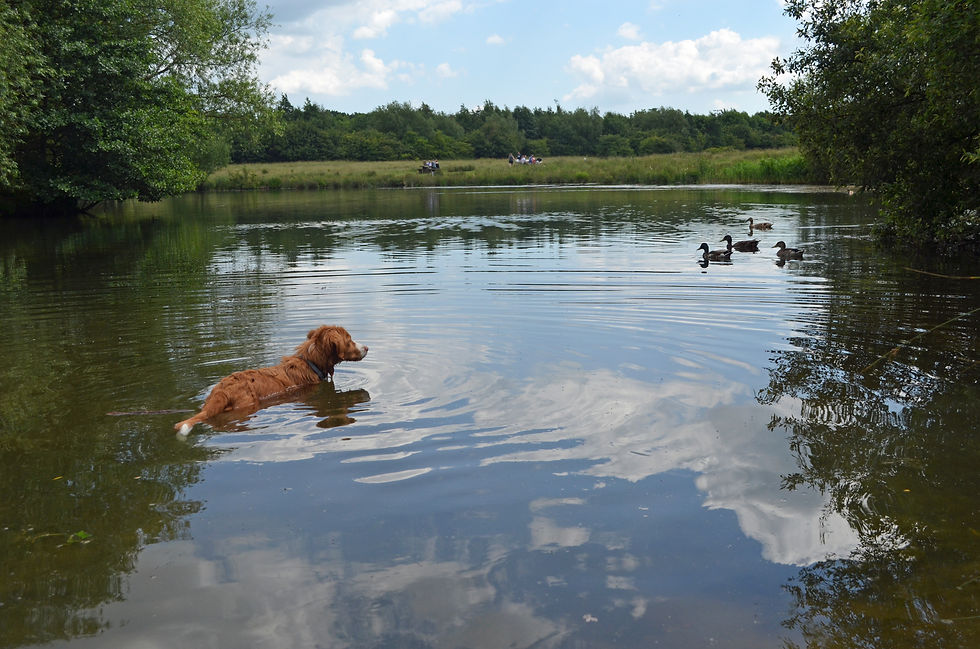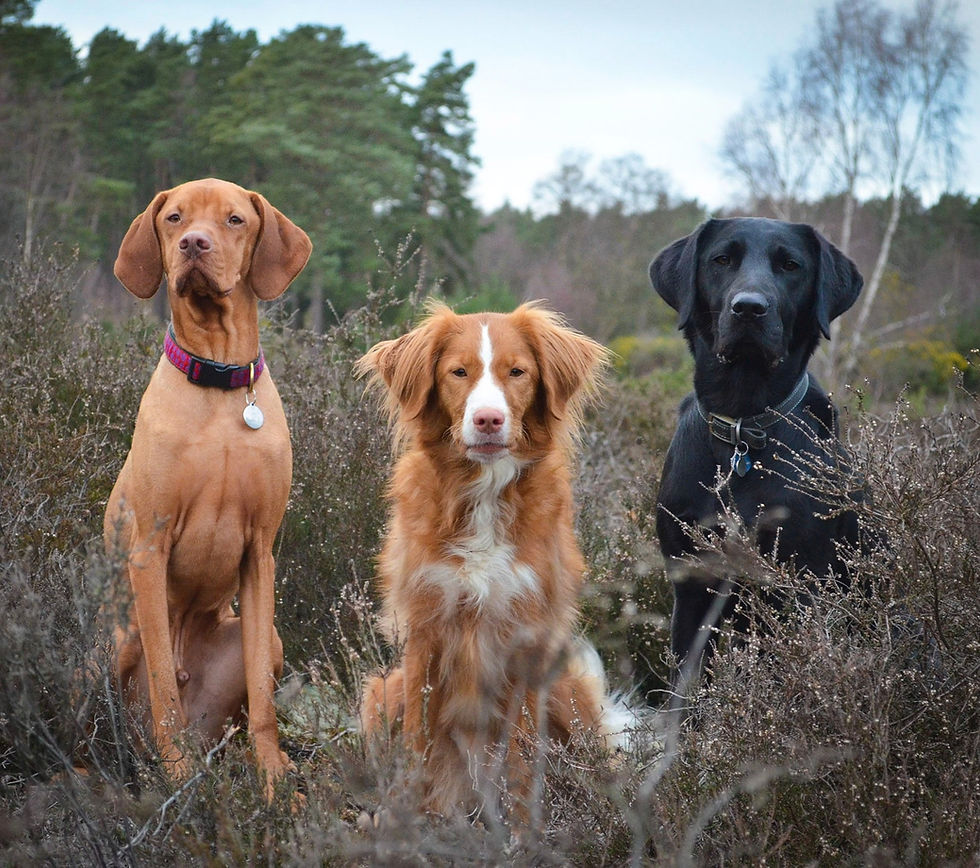5 Recall Mistakes Everyone Makes and How to Fix Them
- Naomi White

- Jul 18, 2025
- 3 min read
We’ve probably all been there, calling your dog and watching them choose to ignore you and run off. It’s frustrating and borderline insulting, especially when you can see the cogs turning in their brain:“Shall I listen? Nah, I think I’ll choose not to… there’s a more interesting blade of grass over here to investigate.”
It’s hard to stay calm in those moments. But how we react to failed recalls can shape our dog’s future choices. Fixing a few common recall mistakes can make a huge difference in your dog’s ability and willingness to come back when called.
Whether you're just starting out or brushing up on your dog recall training, here are five key mistakes to avoid and what to do instead.
1. Not Rewarding Your Dog
It might feel counterintuitive to reward your dog when they’ve taken ages to return, but telling them off or ignoring them once they finally come back teaches the opposite of what you want: it makes coming back less appealing.

Fix it: Start calling your dog when they’re likely to respond, then reward them generously when they do. Even if they’ve been slow to return, fuss them and praise them. Build a habit of recalling frequently and rewarding every time so your dog associates coming back with good things.
2. Only Recalling When You Need To
How often do you recall your dog during a walk? If it’s only when something important is happening, like another dog approaching or when the walk is ending, your dog will start to associate recall with the end of fun.
Fix it: Call your dog back frequently throughout the walk, even if they’re just a metre away. Recall, reward, then release them again. This builds a positive pattern and stops recall signalling the end of fun. The more often your dog has successful recalls, the stronger their response will become. Plus, this will increase your interactions with your dog throughout their walks which will make you more valuable and interesting to them!
3. Bad Timing
If you only call your dog when they’re mid-play, chasing a squirrel, or heading for a muddy puddle, you’re setting yourself up to be ignored.
Fix it: Recall your dog before distractions appear or during natural pauses in activity. You can also try rapid-fire recall practice: recall → reward → release, then repeat 3–5 times before they engage with something fun (like greeting another dog). This can speed up their response and increase reliability.
4. No Management Strategy
Expecting perfect recall without using tools to support the learning process is unrealistic. If your dog is still learning, and you're repeatedly calling them back with no success, you're just rehearsing failure.
Fix it: Use a longline (5–10 metres) during walks while working on recall. It’s not just a safety net, it’s a training tool. Actively use the line to guide your dog back when needed, and reward them every time they respond to your call. Recall them frequently to set strong associations, don’t just rely on holding the line to control their behaviour.
5. Not Teaching the Skill Properly

People often expect their dog to just know what recall means. But have you actually trained it? Dogs aren’t born knowing to come when we call. As puppies they might stick close and appear to have good recall but as soon as adolescence hits and independence grows, it’s
likely to vanish unless you’ve truly taught the skill. (Read more about adolescence here)
Fix it: Start recall training in a low-distraction environment. Use high-value rewards and lots of repetition. Once your dog is consistently responding, gradually introduce more distractions. Keep using your longline until your dog is reliable, otherwise, ignoring you will continue to be self-rewarding.
Need help improving your dog’s recall?
A reliable recall isn’t about luck, it’s about consistency, timing, and reinforcement. If your dog doesn’t come back when called, it’s likely due to one (or more) of these five mistakes. The good news? With the right approach, you can turn it around.
If you’re struggling with recall or want professional support to get it right, we offer 1:1 training sessions designed to build real-life recall skills using kind, force-free methods. Based in Surrey, we work with dogs of all ages and abilities.
👉 Get in touch today to book a recall training session or learn more about how we can help you and your dog succeed.




Comments